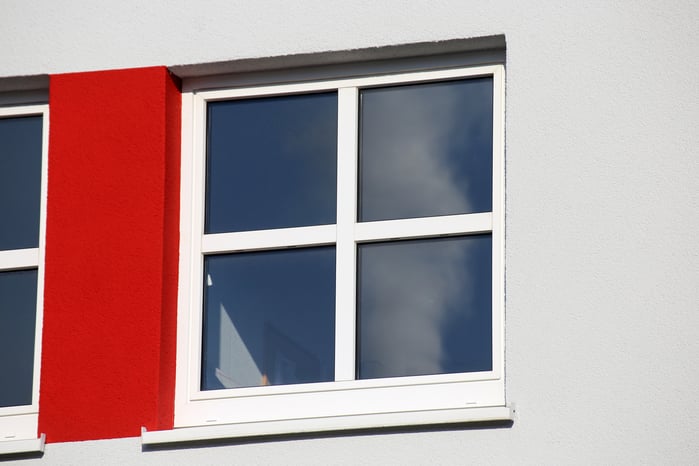
We’ve all walked by a building that had our gaze drawn to a striking window or door design. It’s those small details that leave a lasting impression.
Creating an eye-catching aesthetic with commercial glass doesn’t have to involve extensive design or expensive custom-made pieces.
What are muntins?
In commercial glass design, muntins are one of the simplest ways to add character and enhance the appearance – the subtle difference is that turn ordinary glass into a focal point.
The Mystery of Muntins
So what is a muntin? Muntins are not a cut of meat from sheep.
They’re also not to be confused with mullions, which are the dividing bars between two separate window units.
They are a gridwork pattern in a window or glass in a commercial door that gives the illusion it’s made from multiple smaller panes. Muntin bars are usually made from either flat or contoured aluminum pieces.
They represent one of the earliest window fabrication techniques.
Dating back to 17th-century Greece, these window grid styles allowed tradesmen to easily create glass windows.
What Greek craftsmen lacked in technology, they made up for with ingenuity. Unable to fabricate large panes of glass for sashes, the Greeks instead made windows by creating a wooden gridwork and filling the empty spaces -- or lights -- with glass. This window fabrication technique spread across Europe, and several window grid styles, such as diamond and archtop, became common sights in buildings.
As manufacturing techniques evolved to make large glass sheets during the next two centuries, window grid styles eventually became an aesthetic element for both windows and doors.
Are muntins a good fit for your project?
Learn more about our available muntin patterns and color choices:
What are Different Muntins Designs?
Sometimes the most impactful design choices in a project are the simplest. Muntin bars fit this bill.
In modern construction, muntins help achieve a certain air of sophistication for a space or give it just the right finishing touch. Rather than having a plain window or door, muntin grids add:
- Style
- Definition
- Scale
They also play an important role in restoration projects.
Windows are one of the most commonly replaced components of older buildings. That is no surprise, as windows are always exposed to the elements and display their age if not maintained.
Selecting the right muntin style easily complements a building’s architecture and pays homage to its original construction era. Paying attention to a small(er) detail, such as a window’s or door’s appearance, is critical for those trying to complete a true restoration of a property without obvious modern materials.
3 Different Types of Muntins
There are three types of muntins used in commercial glass:
- Permanent: Installed between two panes of glass, permanent muntins are indeed part of a window. Unlike their Greek ancestor, permanent muntins don’t comprise the structure of a sash. Being located inside a window, permanent muntins do not require tedious dusting and cleaning.
- Removable: As the name implies, this type of muntin is not a permanent fixture of a window. Typically, removable muntins are affixed to the interior-facing side of a window.
- Simulated: This type is a hybrid of sorts between permanent and removable muntins. Simulated muntins are adhered to either the interior or exterior surface of a window. Rather than being part of a window casement, they’re a decorative element. Interior simulated muntin bars are usually wooden, while the exterior is made from the same material as the window frame for continuity.
Muntin grid patterns come in a variety of styles. At New Angle Beveling, we fabricate commercial windows with the following muntin permanent patterns:
- Colonial Grid
- Diamond Grid
- Pencil Bar Diamond Grid
- Circle Top Grid
- Special Circle Top Grids
- Arch Top Sunburst Grid
- Gothic Grid
|
What are muntins materials typically made of?
How do I choose the right muntin style for my building's architecture? How do muntins impact the energy efficiency of my windows or doors? |
Elevate Your Space With Muntins
With a history as rich as the buildings they decorate, muntins have a proven element of power in glass window design. They add depth and detail to any building in need of character. The choice of muntin style plays a powerful role in shaping the look of any space and leaving a visual impact on any commercial glass space.
Are muntins a good fit for your project?
(This article was published in December 2020, and was recently updated)




